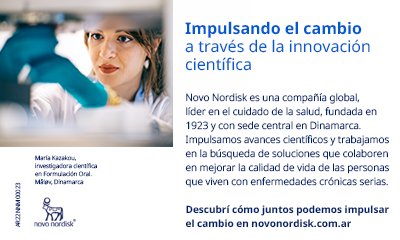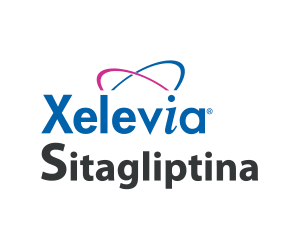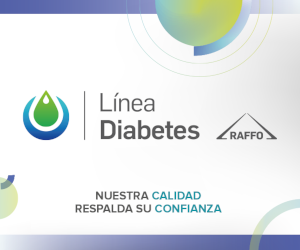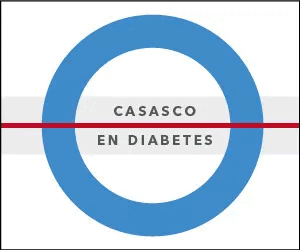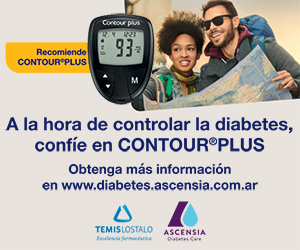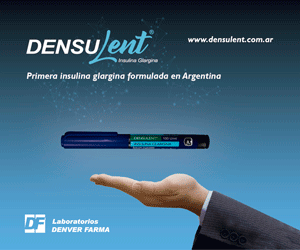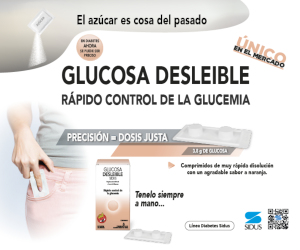Chapter 2: Metabolic control in different stages of chronic kidney disease
DOI:
https://doi.org/10.47196/diab.v58i2Sup.783Keywords:
diabetes mellitus, glycemic control, chronic kidney diseaseAbstract
In the population with diabetes mellitus (DM) and chronic kidney disease (CKD), glycemic control may be subject to conditions that make its compliance difficult, considering that in advanced stages of CKD they frequently experience greater “glycemic variability” (GV).
Metabolic evaluation measured by HbA1c1,2 is altered by conditions associated with CKD.
The evidence suggests that glycated albumin (GA) would be a glycemic marker and prognostic factor superior to fructosamine and HbA1c in populations in stage (E) 4-5 of CKD or in hemodialysis treatment (HD), there being insufficient data regarding of the usefulness of these parameters in early stages of CKD and in peritoneal dialysis (PD). In the event of alterations in albumin metabolism (e.g., proteinuria in the nephrotic range), the results should be interpreted with caution3.
Due to the aforementioned limitations, HbA1c continues to be used as a reference for glycemic control, always considering these limitations.
Self-glycemic monitoring (SMG) is associated with erroneous readings due to the presence of hypoxia, hypertriglyceridemia, hyperuricemia or increased bilirubin4. It does not detect the presence of asymptomatic or nocturnal hypoglycemia, and does not provide dynamic information on variations in blood glucose levels.
References
I. Galindo RJ, Beck RW, Scioscia MF, Umpierrez GE, Tuttle KR. Glycemic monitoring and management in advanced chronic kidney disease. Endocr Rev 2020 Oct 1;41(5):756-74.
II. de Boer IH, Khunti K, Sadusky T, Tuttle KR, Neumiller JJ, et al.; Diabetes Management in Chronic Kidney Disease. A consensus report by the American Diabetes Association (ADA) and Kidney Disease: Improving Global Outcomes (KDIGO). Diabetes Care 1 December 2022; 45 (12):3075-3090.
III. Rossing P. HbA1c and beyond. Nephrol Dial Transpl 2023 Jan 23;38(1):34-40.
IV. Erbach M, Freckmann G, Hinzmann R, Kulzer B, Ziegler R, Heinemann L, Schnell O. Interferences and limitations in blood glucose self-testing: an overview of the current knowledge. J Diabetes Sci Technol 2016 Aug 22;10(5):1161-8.
V. Bergenstal RM, Beck RW, Close KL, Grunberger G, Sacks DB, Kowalski A, Brown AS, Heinemann L, Aleppo G, Ryan DB, Riddlesworth TD, Cefalu WT. Glucose management indicator (GMI): a new term for estimating A1C from continuous glucose monitoring. Diabetes Care 2018 Nov;41(11):2275-2280.
VI. Kidney Disease: Improving Global Outcomes (KDIGO) Diabetes Work Group. KDIGO 2022 Clinical Practice Guideline for Diabetes Management in Chronic Kidney Disease. Kidney Int 2022 Nov;102(5S):S1-S127.
VII. Comendatore V, Curcio D, Facio ML, González A, Nacler E, Ortiz M, et al. Herramientas para el diagnóstico y seguimiento de la enfermedad renal diabética. En Alicia Elbert, editor. Diabetes Mellitus y riñón: enfoque transdisciplinario. 1º ed. Ciudad Autónoma de Buenos Aires: Journal 2022; 43-65.
VIII. Ling J, Ng JKCC, Lau ESH, Ma RCW, Kong APS, Luk AOY, Kwok JSS, Szeto CC, Chan JCN, Chow E. Continuous glucose monitoring metrics in the assessment of glycemia in moderate-to-advanced CKD in diabetes. Kidney Int Rep 2022 Apr 6;7(6):1354-1363.
IX. ElSayed NA, Aleppo G, Aroda VR, Bannuru RR, Brown FM, Bruemmer D, Collins BS, Hilliard ME, Isaacs D, Johnson EL, Kahan S, Khunti K, Leon J, Lyons SK, Perry ML, Prahalad P, Pratley RE, Seley JJ, Stanton RC, Gabbay RA, on behalf of the American Diabetes Association. 6. Glycemic Targets: Standards of Care in Diabetes 2023. Diabetes Care 2023 Jan 1;46(Suppl 1):S97-S110.
X. Battelino T, Danne T, Bergenstal RM, Amiel SA, Beck R, et al. Clinical targets for continuous glucose monitoring data interpretation: recommendations from the International Consensus on Time in Range. Diabetes Care 2019 Aug;42(8):1593-1603.
XI. Rhee CM, Kalantar-Zadeh K, Tuttle KR. Novel approaches to hypoglycemia and burnt-out diabetes in chronic kidney disease. Curr Opin Nephrol Hypertens 2022 Jan 1;31(1):72-81.
XII. Adler AI, Stevens RJ, Manley SE, Bilous RW, Cull CA, Holman RR; UKPDS GROUP. Development and progression of nephropathy in type 2 diabetes: the United Kingdom Prospective Diabetes Study (UKPDS 64). Kidney Int 2003 Jan;63(1):225-32.
XIII. Diabetes Control and Complications Trial (DCCT)/Epidemiology of Diabetes Interventions and Complications (EDIC) Study Research Group. Intensive diabetes treatment and cardiovascular outcomes in Type 1 Diabetes: The DCCT/EDIC Study 30-Year Follow-up. Diabetes Care. 2016 May;39(5):686-93.
XIV. Lachin JM, Nathan DM; DCCT/EDIC Research Group. Understanding metabolic memory: the prolonged influence of glycemia during the Diabetes Control and Complications Trial (DCCT) on future risks of complications during the study of the Epidemiology of Diabetes Interventions and Complications (EDIC). Diabetes Care 2021 Sep 21;44(10):2216-24.
XV. Holman RR. Clinical outcomes at 44 years: do the legacy effects persist? [Webinar]. Session: S22 UKPDS 44-Year Follow-up Symposium. Hybrid 58th EASD Annual Meeting. Disponible en: www.easd.org/media-centre/#!resources/ukpds-perspective-legacy-effects-and-44-year-follow-up-data.
XVI. Ruospo M, Saglimbene VM, Palmer SC, De Cosmo S, Pacilli A, Lamacchia O, Cignarelli M, Fioretto P, Vecchio M, Craig JC, Strippoli GF. Glucose targets for preventing diabetic kidney disease and its progression. Cochrane Database Syst Rev 2017 Jun 8;6(6):CD010137.
XVII. Nathan DM; DCCT/EDIC Research Group. The diabetes control and complications trial/epidemiology of diabetes interventions and complications study at 30 years: overview. Diabetes Care 2014;37(1):9-16.
XVIII. Wong MG, Perkovic V, Chalmers J, Woodward M, Li Q, Cooper ME, Hamet P, Harrap S, Heller S, MacMahon S, Mancia G, Marre M, Matthews D, Neal B, Poulter N, Rodgers A, Williams B, Zoungas S; ADVANCE-ON Collaborative Group. Long-term benefits of intensive glucose control for preventing end-stage kidney disease: ADVANCE-ON. Diabetes Care 2016 May;39(5):694-700.
XIX. Bash LD, Selvin E, Steffes M, Coresh J, Astor BC. Poor glycemic control in diabetes and the risk of incident chronic kidney disease even in the absence of albuminuria and retinopathy: Atherosclerosis Risk in Communities (ARIC) study. Arch Intern Med 2008 Dec 8;168(22):2440-7.
XX. Fontes-Carvalho R, Santos-Ferreira D, Raz I, Marx N, Ruschitzka F, Cosentino F. Protective effects of SGLT-2 inhibitors across the cardiorenal continuum: two faces of the same coin. Eur J Prev Cardiol 2022 Jul 20;29(9):1352-1360.
XXI. Gerstein HC, Miller ME, Byington RP, Goff DC Jr, Bigger JT, Buse JB, Cushman WC, Genuth S, Ismail-Beigi F, Grimm RH Jr, Probstfield JL, Simons-Morton DG, Friedewald WT; Action to Control Cardiovascular Risk in Diabetes Study Group. Effects of intensive glucose lowering in type 2 diabetes. N Engl J Med 2008 Jun 12;358(24):2545-59.
XXII. Papademetriou V, Lovato L, Doumas M, Nylen E, Mottl A, Cohen RM, Applegate WB, Puntakee Z, Yale JF, Cushman WC; ACCORD Study Group. Chronic kidney disease and intensive glycemic control increase cardiovascular risk in patients with type 2 diabetes. Kidney Int 2015 Mar;87(3):649-59.
XXIII. Lipscombe L, Butalia S, Dasgupta K, Eurich DT, MacCallum L, Shah BR, Simpson S, Senior PA; Diabetes Canada Clinical Practice Guidelines Expert Committee. Pharmacologic glycemic management of type 2 diabetes in adults: 2020 Update. Can J Diabetes 2020 Oct;44(7):575-591.
Downloads
Published
How to Cite
Issue
Section
License
Copyright (c) 2024 on behalf of the authors. Reproduction rights: Argentine Society of Dermatology

This work is licensed under a Creative Commons Attribution-NonCommercial-NoDerivatives 4.0 International License.
Dirección Nacional de Derecho de Autor, Exp. N° 5.333.129. Instituto Nacional de la Propiedad Industrial, Marca «Revista de la Sociedad Argentina de Diabetes - Asociación Civil» N° de concesión 2.605.405 y N° de disposición 1.404/13.
La Revista de la SAD está licenciada bajo Licencia Creative Commons Atribución – No Comercial – Sin Obra Derivada 4.0 Internacional.
Por otra parte, la Revista SAD permite que los autores mantengan los derechos de autor sin restricciones.


